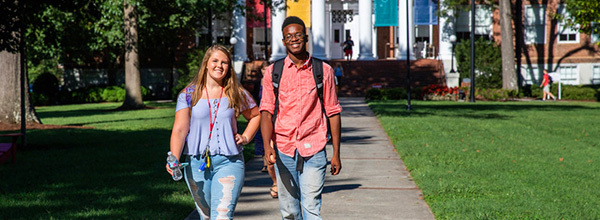Philosophy Degree (BA)
Studying philosophy at the University of Lynchburg means launching inquiries into the most abstract and important questions we can raise. What is ultimate reality? How can we live a good life? Is beauty a matter of what you like? What makes actions morally right or wrong? You’ll explore these questions with other students who are as passionate about them as you are.
Philosophy majors at Lynchburg learn to analyze, interpret, evaluate, and communicate logically and effectively. Besides courses in ethics and logic, you’ll study different philosophical schools and methods. You’ll also explore your own beliefs and learn how others think about these same issues.
When you graduate, your analytical skills will be an asset for any career path you choose.
As a Lynchburg philosophy student, you’ll:
- Explore important questions of existential concern.
- Build logic and persuasive skills that will last a lifetime.
- Gain critical thinking skills that will set you apart in any field.
- Explore different philosophical traditions to become a lifelong thinker and problem-solver.
Faculty Contact
Stephen Dawson, PhD
Associate Professor of Religious Studies
Chair of the Philosophy Department


